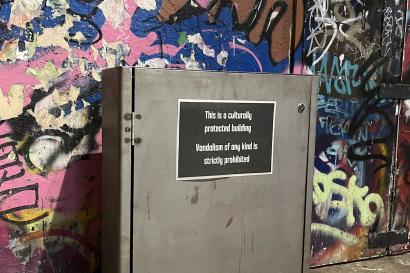
Entering my junior year as a finance major, I knew that I would need to have my head in the game when it came down to thinking about next summer’s internship and, potentially, my future with whatever company I end up at. For finance and some business internship roles, applications begin almost a year in advance. Thus, I have been in the thick of recruiting and interviewing right as my year abroad is beginning.
While I certainly came prepared to push through how being abroad may provide challenges during this recruiting period (less access to company representatives, difficulties with time zone differences, etc.), I was surprised by the many ways being abroad actually gave me an advantage when it came to interviewing.
To demonstrate this, here are a few common interview questions I heard where my experience studying abroad aided me in answering them!
Tell me about a time when you failed or made a mistake.
Being abroad, you are constantly faced with new situations that you simply do not have the experience or knowledge to navigate. With this new territory, you are bound to make mistakes. While they often may not connect directly to the workplace, these abroad mistakes and how you respond to them can truly demonstrate how you navigate mistakes interpersonally or use your prior knowledge to push beyond the mistake. All those times when you accidentally made a cultural misstep or communication error have developed your strengths in problem-solving and managing conflict. By emphasizing how this mistake took place in an environment very different from your home in the U.S., you can show interviewers your resilience in the face of challenge.
How do you juggle multiple priorities?
Juggling multiple priorities is the baseline experience for studying abroad. Between balancing academics, social life, exploring a new city, travel opportunities, keeping in touch with loved ones back home, and any other lingering responsibilities, students abroad are constantly faced with making tough decisions on how to best manage it all. I found managing these various responsibilities to be a great test of one's time management and organizational skills. I think it is also a great opportunity to share how you evaluate your limits, as finding time to rest during study abroad is something many students struggle with.
Can you give an example of a communication challenge you experienced and how you overcame it?
One of the core challenges of studying abroad often revolves around communication, both from a language perspective and from a cross-cultural communication perspective. When you are communicating with residents of your host country, you cater your message and form of communication to best fit your audience without even realizing it. By analyzing this sometimes-automatic process, you can create a sophisticated look into how you approach challenging communication situations and how you can adapt to such challenges on a day-by-day basis. Unpacking navigation of cultural differences whilst communicating also displays a mature approach to thinking about communication made unique by your study abroad experience.
Describe a time when you had to adapt to a new environment quickly.
This is by far the easiest question to relate to your abroad experience. One day right before your fall semester you find yourself thrust into a new country with entirely new customs, ways of life, languages, and daily challenges. No amount of preparation can prepare you for this complete shake-up of your environment, and the immense growth you experience as a result cannot be downplayed. While you may be surrounded by other students undergoing similar growth and it may feel less unique, do not forget that this development is still immensely meaningful to you. You find yourself in a privileged position where you have overcome entering a new environment where change has touched every part of your life. During interviews, describing the difficulties you faced, how you adjusted your mindset or behaviors, and the ultimate result of this adaption is an exceptional way to answer this question. Beyond that, being vulnerable about struggles while abroad is a great way to connect with interviewers, as it brings in a very human element to your answer rather than a stiff, corporate one.
Overall, take time to reflect on what you have learned from abroad beyond simply academics and language skills. While both are certainly important to shaping you as a person, personal growth and soft skill development is the component that highlights your fundamental change as a person throughout this experience. Despite having many weeks left in the semester, I can already feel how much more prepared I am for whatever life throws at me because of this adventure. The reflection prompted by many interview questions led me to value my journey abroad deeply, and the added career development perk was certainly a lovely bonus.

Josef Kiesenhofer
Howdy folks! My name is Josef Kiesenhofer, and I'm a passionate accounting, German, and Spanish student excited to explore the world. I love all things blue and embroidering on clothes. I sometimes have a broadcast radio DJ show, too!








